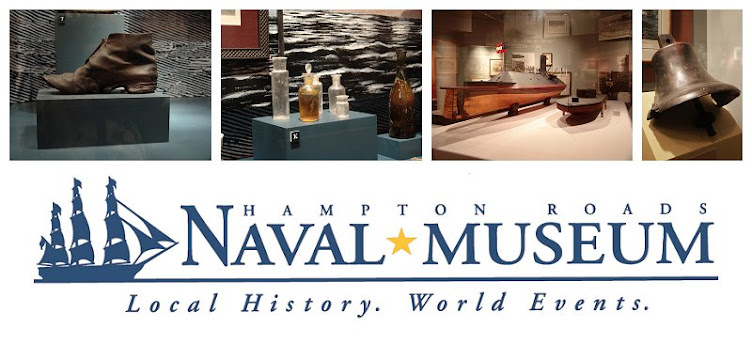This historic painting depicts Virginia native
Arthur Sinclair II (1780-1831), a man who became known for his naval exploits
around the globe. As one of the Commonwealth’s most decorated naval war heroes,
Sinclair served aboard USS Constellation in several of its important
early engagements and was a Commanding Officer Afloat at Gosport Navy Yard from
1819 to 1830. Sinclair served during three wars: the Quasi-War with France, the
Barbary Wars, and the War of 1812. His three sons also served in the U.S. Navy,
but all three resigned in 1861 to fight with the Confederacy.
 |
| USS Constellation model |
For much of the War of 1812, Sinclair was
assigned to the Great Lakes as part of Commodore Isaac Chauncey’s squadron,
where he commanded the warship General Pike in an engagement on Lake Ontario
in September 1813. For his valor during another engagement on Lake Erie in 1813,
Sinclair received a presentation sword from the Commonwealth of Virginia (now
in the Virginia Historical Society’s collection). In 1814, Sinclair commanded
the Niagara on Lake Huron and Lake Superior, during which time he directed
actions against Fort St. Mary’s and Fort Nautauwassauga. In September of 1818,
under the direction of Captain John Cassin, Sinclair superintended the
construction of a seventy-four-gun ship at Gosport Navy Yard in Portsmouth,
Virginia. The following year, Sinclair was ordered to take over the commanding
duties of Captain John Shaw at Gosport and became Commanding Officer Afloat there
from 1819 until 1830. In addition to these duties, Sinclair was instrumental in
the establishment of a nautical school for young officers of the Navy on the
frigate USS Guerriere in
1821 (the Naval Academy would not open until 1845). The school operated until 1828, when Guerriere
was ordered to duty in the Pacific.
The painting of Arthur Sinclair is currently in the Hampton Roads
Naval Museum’s collection.
(This blog post was written by HRNM's Public Relations Coordinator, Susanne Greene.)


No comments:
Post a Comment